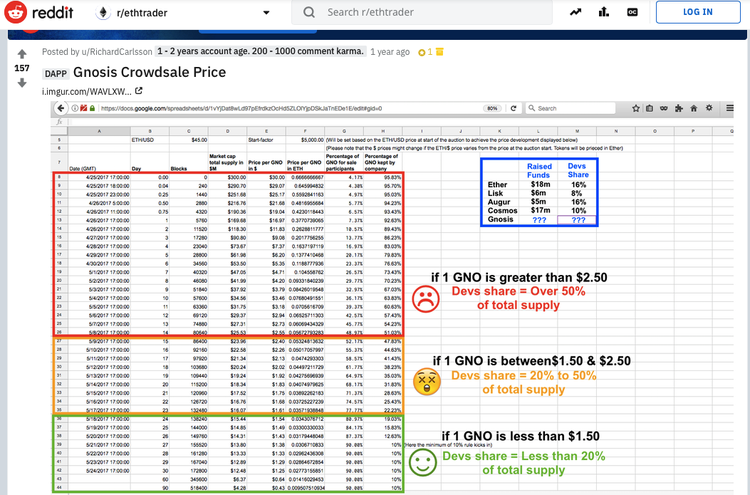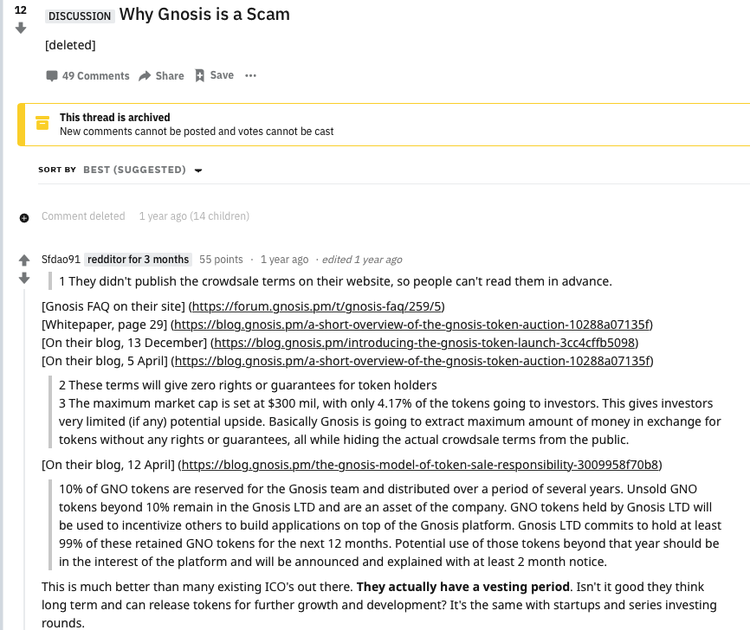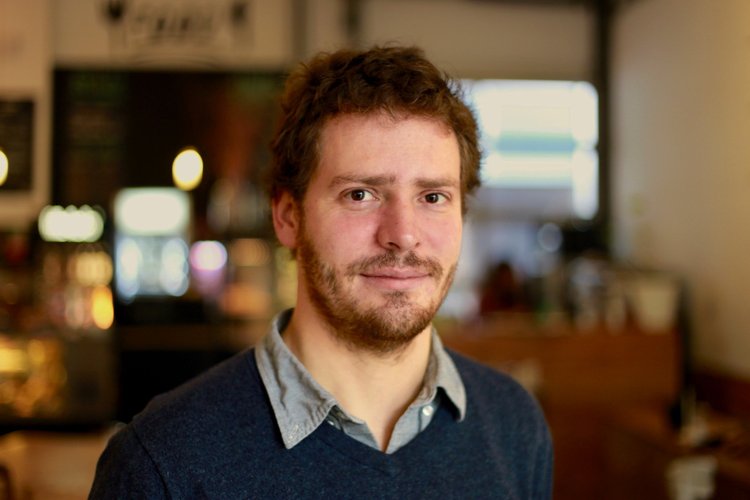This time Insider.pro decided to take a closer look into the Gnosis platform, which for a one-day ICO managed to collect an impressive sum, then distributed the collected funds in a rather interesting way and still continues to attract users and experts. Let’s find out, where is the catch with Gnosis.
Gnosis is a platform for marketing forecasts. The platform allows users to ask random questions regarding events and then to buy or sell shares as a results of these events - much like sport betting. Gnosis is still a controversial project - some believe it to be a scam, while others consider it to be a spoiled project.
Here is what the team says.
It seems like there is nothing surprising to the project, but there is a one curious fact. During one-day ICO in April, 2017 the project needed only 12 minutes to sell its GNO tokens to gather $12.5 million. The team issued 10,000 token and set a price of $30 per token. So after such a great ICO, market capitalization rapidly became $300 million.
But that doesn’t looks scary. So what’s the issue here? The main stumbling block is that only 5% of tokens were received by investors and the other 95%… by the team.
For those who need numbers: Gnosis saved about 95% of its tokens that meant that the team had saved about $288 million.
Here, the only word that springs to mind is: “scam”.
After a great ICO, most disappointed investors decided to brand the deal with Gnosis as - fraud, as they were not happy with the outcome. The idea that the company retains the majority of the collected sum and that they will never sit down directly with these people to rethink the ratio, drove investors into despair.
And here’s something else...
Before an ICO launch, Gnosis blog was extremely active and presented the project as a pure blessing, and many people were excited in anticipation of the token sale. But if somebody found time and read carefully the terms of the ICO, some ambiguous moment would have become more apparent. And some people have done it. In Reddit one user made a post with a revealing layout of the ICO scenario.
Some people in the community were even more abrupt in their assessments of what was happening. This user headlined his post as "Why Gnosis is a scam":
Moreover in May, 2017 an article appeared in The Atlantic, where the author drew a parallel between Gnosis and Onecoin, that was conducting its ICO at the same time.
But whatever it is, the platform continues to evolve and is even planning to launch its services in the third quarter of 2018. According to one of its founders, Martin Köppelmann “Gnosis is part of a new wave of decentralized platforms, key to which is ‘permissionless’ innovation. Having an open platform with verifiable behavior introduces an incredible opportunity to bring a wide range of applications onto Gnosis, many of which we never anticipated”.
And now let’s consider in detail who took a lead of the Gnosis project that brought so much money to the developers. Meet the Gnosis founders: CEO - Martin Köppelmann and CTO - Stefan George.
Martin Köppelmann has a very private life and doesn’t like to talk about himself. It is only known that Köppelmann has more than 4 years experience as an entrepreneur and a believer in blockchain technology. He is the founder of the largest bitcoin market - Fairlay, but moved his attention towards the ethereum project and became one of the founders of Gnosis. He is closely related to forecasting markets in his work on decentralized market management mechanisms: Futarchy.
In addition to entrepreneurial activity, Martin conducted a study into the structure of economic incentives for Consensys. Martin is well known for his work and research of the Circles project, an electronic cryptocurrency with the aim of creating and distributing a globally accessible Universal Basic Income.
Stefan George also isn’t know for disclosing his biography. Stefan is an entrepreneur and a developer who has been interested in bitcoin since 2013. Together with Köppelmann they started Fairlay. Earlier, Stefan worked in several tech companies in Silicon Valley and in a startups in Berlin, Germany.
After completing his master's program, he decided to travel across Asia for a year in 2014 and soon started the Gnosis project. First alpha-version of Gnosis began operating only a week after the launch of ethereum.
Recently Stefan leads the development of Gnosis and has implemented smart-contracts for the platform. In addition, Stefan wrote ICO’s campaigns for Gnosis and SingularDTV.
It is worth noting that Gnosis differs from other ICO projects, which could be a cause for distrust but at the same time collected a significant amount of money, with an extremely cautious strategy and actions, as well as a team of technical professionals (in contrast to Onecoin). The board of the company includes a well-known persons in cryptoworld, the founder of ethereum and ConsenSys Joseph Lubin and Jeremy Millar. Co-founder of augur, Matt Liston, is among the advisors.
Each of them has a long-standing positive reputation in the ethereum community. But isn’t it a reason for greater concerns for the funds of the Gnosis project, because they are being ran by professional and intelligent people. That should be even more frightening.








